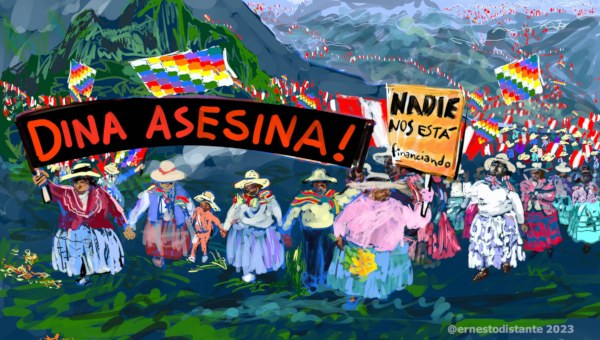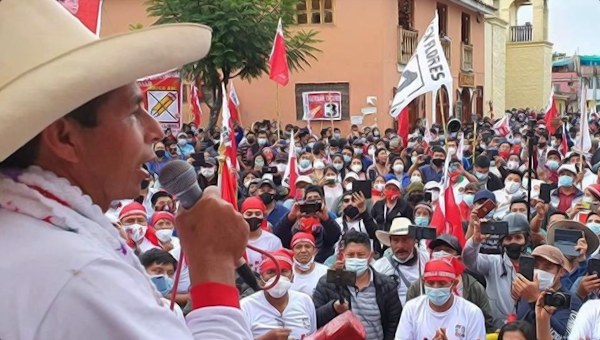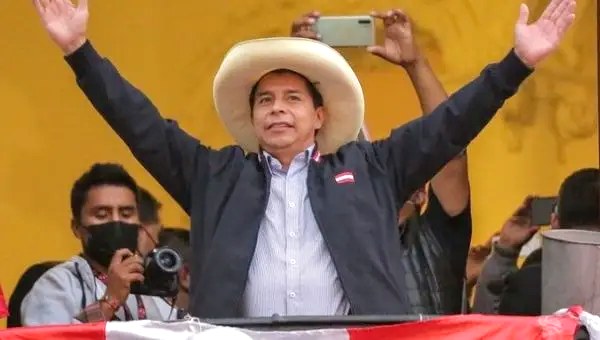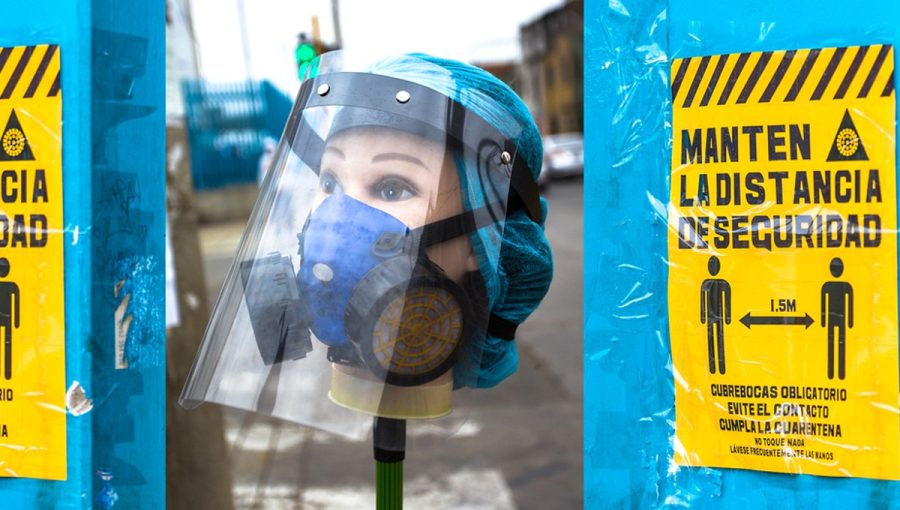My Departure From Peru
My name is Jan Lust. I was born in the Netherlands. I arrived in Peru in March 1999. I have lived here for more than 25 years. During this time, I have worked as a professor-researcher at different universities such as the Pacific University, the Pontifical Catholic University of Peru (PUCP), and the Ricardo Palma University (URP).
My stay in Peru was motivated by social and political reasons. My main objective was to contribute to processes that aimed to produce profound political, economic, and social changes in society. My first trip as a tourist was in 1998. It was then that I became convinced that Peru was the place where I wanted to spend the best years of my life.
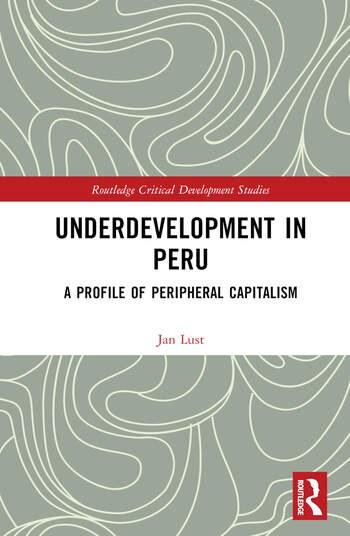
Regarding my political thinking, I considered that the wealth produced by everyone should be equally distributed to everyone. My approach was not based on working for a better distribution of wealth but rather on seeking changes of productive processes. I thought, and still think, that the country needs profound transformational changes.
My motivation to contribute to structural changes in Peru led me, on the one hand, to carry out academic and intellectual activities and, on the other hand, to participate in various non-academic processes. I always tried to relate my intellectual work with raising awareness of the need for political, economic and social change.
Underdevelopment in Peru
For this reason, the topics I deal with in my books address the revolutionary struggle of the 1960s; the political, economic and social development in the period 1980-2016; and the structural and systemic character of underdevelopment in Peru. In all of these works I analyze the political, economic, and social problems that inhibit the necessary transformational changes. My articles and book chapters on guerrilla processes in the 1960s, armed struggle in the 1980s and 1990s, the Peruvian left in the 1980s, the neoliberal economic model, the country’s economic structure, extractivism, mining and economic power, job insecurity, the structural character of inequality in Peru, the Peruvian State, COVID-19, civil society, state capture, the country’s class structure and class struggle in recent years, among others, seek to interpret and facilitate changes in Peruvian reality.
Now I must announce that my contribution to transformational change via the Peruvian academic field is coming to an end. The rightward shift of Peruvian politics expressed in the domination of the extreme right in Congress, the generalization of mediocrity in the Peruvian academy, and the rule of neoliberal thought have stopped me from contributing in the same way as before. After 25 years, the academic doors have been closed.
What I am going to tell you below is my testimony about the end of my stay in Peru. I will start with the last event that happened at the URP. On Wednesday, April 17 of this year, three people from the university security tried to force me out of my office at the Research Center. They told me that I was no longer working at the university. That was a complete surprise to me. That day, they were unable to get me out of my office. But, on April 19, two days later, they prohibited me from enter the university. In fact, to make sure that I could not enter in any way, it seems that the authorities had the support of “special” security. This fact showed me that the extreme right had taken over direction of the URP.
Slanderous Accusations
Apparently, my removal from the university is the result of slander that started some years ago. Four years ago, accusations started to spread that I was promoting “Gonzalo thought” (named after the deceased leader of the armed organization the Shining Path) in my online classes at the PhD program of Political Science. At that time, the authorities did not take these accusations seriously. They were considered of a defamatory nature and without any evidence. Although these same authorities never wanted to reveal their source, the indications pointed to another authority within the URP, related to extreme right forces at the Faculty of Economic and Business Sciences. In March 2020, at the beginning of the pandemic, this same authority took the opportunity to remove me, without any academic justification, from the course that I had been teaching since 2016 at the aforementioned faculty.
The change of authorities at the end of 2023 radically altered my situation at the URP. Now the rumor began to circulate that I was related to the Movement for Amnesty and Fundamental Rights (MOVADEF), an organization also linked to the Shining Path. There were even videos that demonstrated this relationship. As in the case of my supposed dissemination of “Gonzalo thought” in my online classes, there was no evidence either.
My case is an example of the famous “terruqueo” that the Right applies to all those who fight for the well-being of the majority, to all those who openly criticize the economic model in place, to all those who declare themselves against the exploitation of human beings by other human beings, to all those who advocate for profound transformational changes in our society, and to all those who identify with critical thinking, the free development of science and in opposition to neoliberal thinking.
This last accusation seems to have reached the new authorities of the URP. Arguing that there were no students for my courses, they unilaterally terminated my contract. According to what I was told off the record, it was these new authorities who prohibited me from continuing to work at the university.
The fact that the URP decided to end my contract was not a surprise to me, but it was confirmation of the cost of having an opinion contrary to the dominant forces. In 2004, for example, my contract was cancelled at the first Peruvian university where I worked for reasons similar to those at URP. On another occasion, the authorities of a university considered to be one of the best in the business field told me verbally that they could not hire me because I was a leftist. Likewise, at another important university, they withdrew me from a course on the same day that I had been formally accepted. That is, on the day that it had been agreed with those in charge of the course that I would teach classes on Peruvian national reality, I received a call from a supposed authority who told me that there were not enough students to hire me. I later found out that this authority was related to mining businesses in Peru, which made me assume that he was informed about the topics and contents of my articles.
In 2023, I participated in a competition for a position in the Department of Economics at PUCP. The Department Council withdrew me from the competition for not meeting a number of criteria that were not published in the call before and during the competition. No one could meet these criteria because they were subjective in nature, which discreetly served to reject my application.
Many Victims of the Right
What has happened to me is not new and is not unique. Although their cases are not known, there are dozens of people in Peru who lose their jobs for political reasons. They are not known because these people do not want to lose future job opportunities. It is understandable, but I think we should set a precedent because the desire of the Right is to silence us with fear. I denounce it and make it public.
From the Left we can say that this is part of the job. But it is not something that is easy to assume. Losing your job in Peru can have major social consequences, and even more so when it is for political reasons. It is not only an attack on the well-being of those directly involved, but also on the well-being of their families and other related people. Above all, it is an attack on the development of a free and democratic society.
The situations experienced at the URP are evidence of a clear advance of the extreme right in Peru. The problems I have had in other universities show that the academy is not exempt from class struggle. The Right, whether liberal or conservative, always tries to silence, in the academy and anywhere else in society, antagonistic voices that seek social transformation and well-being for the producers of national wealth.
Today, in Peru, the situation is not favorable for the forces of social change and happiness. However, this does not imply that we should retreat and remain silent. If we remain silent, the winds and darkness of the forces of the past will become a storm.
We denounce, suffer, and fight so that the joy of building a country for all becomes a realized horizon.
To resist now is to win tomorrow! •


